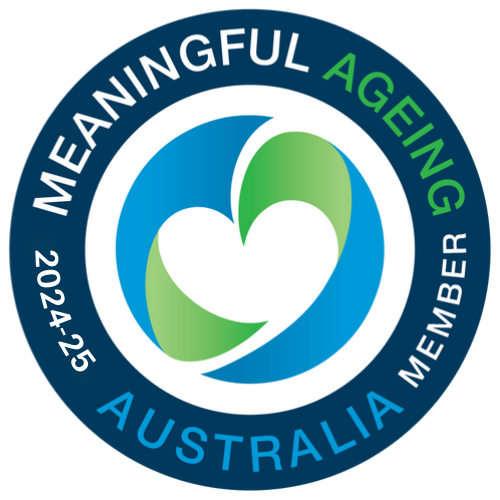When it comes to the care of our elderly and disabled loved ones, we all want to ensure they are treated with dignity, respect, and compassion. Unfortunately, this hasn’t always been the case, which is why Australia took a vital step in 2018 by launching the Royal Commission into Aged Care and Safety. This initiative wasn’t just bureaucratic—it was a crucial response to mounting concerns about how our society cares for the elderly and disabled.
In this blog, you will learn what was uncovered by the Royal Commission, why it matters, and how it’s shaking things up for the better for the Australian aged care system.
What is the Royal Commission in Aged Care?
A Royal Commission is one of the highest forms of inquiry into public matters in Australia. It’s not just any investigation—it’s a major move by the government to tackle issues that are deeply important to the public.
In the case of aged care, the Royal Commission into Aged Care Quality and Safety was established because concerns reached a boiling point. Reports of neglect and substandard care in facilities meant that something significant had to be done. The Royal Commission investigated the quality and safety of residential and in-home aged care for older people, as well as young people with disabilities.
The commission’s job was to listen—really listen—to all sorts of evidence from people affected, from experts in the field, and even from the organisations involved. Then, based on what it learned, the commission provided recommendations on how to improve the system, ensuring that aged care services offer dignity, respect, and high-quality care to every individual.
This kind of inquiry is crucial because it helps spark significant changes that are backed by thorough research and widespread consultation. It’s about making a lasting difference in the lives of some of the most vulnerable members of our community.
Why was a Royal Commission into Aged Care Necessary?
You may have heard troubling stories regarding the care provided in certain facilities or home — stories that perhaps made you worry about the kind of care your loved ones might receive. These were not just anecdotal; they reflected a broader issue within our care system.
The commission was set up to investigate these problems, uncover the truth, and drive substantial improvements. It was about examining our systems to ensure they truly serve those who depend on them most.
This commission was more than an investigation; it was a promise to our community—a promise to uphold the dignity and safety of every individual in aged care.
What were the findings of the Aged Care Royal Commission?
After reviewing over 400 submissions, some of which were described as ‘disturbing,’ the Royal Commission found that the Australian aged care system ‘fails to meet the needs of its older, vulnerable citizens. It does not deliver uniformly safe and quality care.’
Shocking Revelations
The Aged Care Royal Commission findings were a shock to many. The investigation revealed that the system, designed to protect and care for the elderly and disabled, was failing in several key areas. These findings were not merely minor setbacks. They highlighted significant deficiencies that directly compromised the safety and dignity of individuals. This revelation was more than a wake-up call—it was a dire need for sweeping changes.
Need for Fundamental Reform
The commission determined that the system requires ‘fundamental reform.’ While these findings were concerning and widespread, it’s important to note that there are also many hard-working and dedicated people within the aged-care system – but it is the system itself that is being reviewed.
What were the Aged Care Royal Commission Recommendations?
The commission didn’t just diagnose the problems. They handed us a blueprint for making things right. There were 148 recommendations published, looking into key areas such as the Aged Care Act, funding, governance (administration) quality, and safety.
Some important recommendations include:
- Updating the Laws: Replacing the Aged Care Act 1997 with a new rights-based act that centres the desires and needs of those requiring care rather than one driven by budgets
- Boosting the Budget: The Royal Commission suggested increasing funding to ensure that aged care facilities could provide higher quality care.
- An overhaul of how aged care would be governed: To ensure that aged care providers meet high standards consistently, the commission recommended improving governance and oversight mechanisms. This includes better monitoring and accountability practices. This way, we ensure that care standards don’t just rise but stay high.
- Training the Team: The backbone of good care is competent, caring staff. The commission stressed better training and clear staffing requirements to make sure every caregiver is up to the task.
- Introducing a Rating System: Much like ratings used in other service industries, a star rating system for aged care facilities was proposed. This would help families make informed decisions about where to place their loved ones based on transparent and reliable indicators of quality care.
- Requirements mandating minimum staff time for registered nurses
These recommendations are about building an aged care system that not only does its job but does it with excellence and compassion. Everyone deserves that kind of care.
How Has Vital Home Health Services Changed to Meet the New Aged Care Standards?
Vital Home Health Services has taken the Aged Care Royal Commission Recommendations seriously. We remain dedicated to providing best-practice home-based care as always. In fact, our approach to care, standards, and staffing is already in line with many of the recommendations. Here’s how we’re getting ahead:
- Proactive on Policy: We strongly support the need for a rights-based Aged Care Act. This is something that already aligns with our organisation’s philosophy. We take a person-centred approach to care, meaning that our services are personalised, tailored, and take a client’s preferences into account.
- Investing in Excellence: Vital Home Health Services is already accredited by The Australian Council on Health Care Standards, which ensures that the nursing and support staff entering your home meet the highest standards. We also hold extra accreditations that are in addition to the mandatory ones, meaning not many other home care providers go the extra mile to obtain them. That is how committed we are to providing the best care and support services to our clients.
- Ensuring Quality Control: With strengthened internal checks and a commitment to transparency, we are making sure that high standards are the norm, not the exception.
- Empowering Our Staff: By ramping up training and support, we ensure that our staff are not only qualified but also compassionate and ready to provide exceptional care.
- Launching a Ratings Guide: We’ve introduced an easy-to-understand rating system for our services, helping families make informed decisions with confidence.
- Licensed and Professional Team: We employ and provide educational support to our registered nurses. We also employ clinical support specialists, including a team of senior registered nurses, nurse educators, and a wound nurse practitioner.
How will the Royal Commission impact Vital Home Health Services clients?
While we expect significant changes from the Aged Care Royal Commission, we do not anticipate any impacts on our clients.
Compliance and Preparedness
As a high-quality, accredited care and nursing provider, Vital Home Health Services does not need to take immediate action as we are already doing most of the recommendations the Royal Commission has listed. Some of the things we already implement include:
- Enhanced Staff Training: We continuously improve our training programs to ensure our staff provide the best care possible.
- Increased Staff-to-Client Ratios: We have more caregivers available per client, allowing for personalized and attentive care.
- Regular Policy Updates: We frequently update our care and operational policies to stay aligned with the latest standards.
- Frequent Quality Checks: We conduct regular checks to make sure all aspects of our service meet our high standards.
- Improved Feedback Systems: We’ve made it easier for clients and their families to give us feedback, which helps us quickly address any concerns.
- Staff Wellbeing Programs: We support our staff’s health and well-being, ensuring they are at their best when caring for clients.
We expect to be updated on any significant changes that emerge from the recommendations. Any recommendations and protocols that need to be put in place will be acted upon accordingly and promptly.
Leadership and Standards of Care
Our team, led by a Director of Nursing with over 28 years of experience, is committed to maintaining our excellent standards of care and services. We are continuously monitoring guidance to ensure required changes are implemented smoothly.
In the meantime, you can be certain that we will continue to provide the same high-quality service as always.
A Commitment to Excellence in Aged Care
The findings and recommendations of the Royal Commission into Aged Care Quality and Safety have catalysed change across the entire aged care sector in Australia. Vital Home Health Services has embraced this call to action, leading the way with proactive changes that not only meet but aim to exceed the new standards.
At Vital, we understand that the journey towards excellence in aged care is continuous. Our commitment to our clients and their families is unwavering—we strive to provide care that honours their dignity, upholds their rights, and exceeds their expectations. We believe that every interaction with our clients is an opportunity to demonstrate our dedication to their well-being.
Other Frequently Asked Questions (FAQs)
How Can Vital Home Health Services Help
At Vital Home Health Services, we are more than just a provider. We are your partner in ensuring quality and compassionate care. Through this commitment, we ensure that your loved ones receive the dignity, respect, and attention they deserve. Despite the changes brought about by the Aged Care Royal Commission, our commitment to upholding the highest standards of care remains unwavering. We invite you to experience the difference with us—whether you’re exploring aged care options for a loved one or interested in our services.
We understand the importance of transparency and open communication. For any further information, updates, or concerns, please feel free to reach out. You may visit our website or call us directly on 1800 717 384. Contact us today to experience how Vital Home Health Services ensures your loved ones receive the best care available, with compassion and dignity at the core of everything we do.








